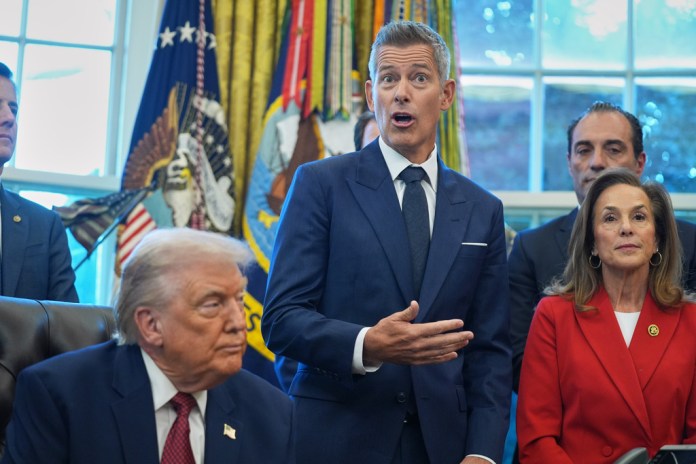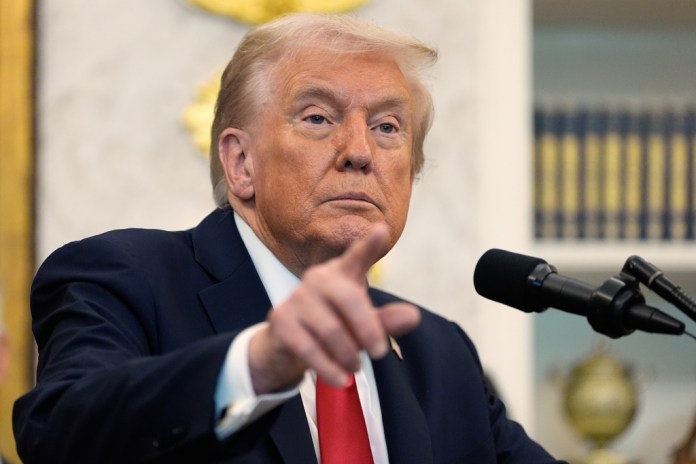Biden Admin Gets Behind Bipartisan Bill That Would Allow U.S. To Ban TikTok, Take Action Against Other Foreign Threats
The administration of President Joe Biden stated Tuesday afternoon it supported a bipartisan piece legislation, which was introduced just by a group senators. It would have allowed the U.S. ban TikTok as well as take actions against foreign enemies.
Sens. Senators.
This legislation empowers The Department of Commerce is responsible for reviewing, preventing, and mitigating information communication and technology transactions (ICT), that could pose an undue threat to U.S. national and economic security.
“Today, the threat that everyone is talking about is TikTok, and how it could enable surveillance by the Chinese Communist Party, or facilitate the spread of malign influence campaigns in the U.S. Before TikTok, however, it was Huawei and ZTE, which threatened our nation’s telecommunications networks. And before that, it was Russia’s Kaspersky Lab, which threatened the security of government and corporate devices,” Warner. “We need a comprehensive, risk-based approach that proactively tackles sources of potentially dangerous technology before they gain a foothold in America, so we aren’t playing Whac-A-Mole and scrambling to catch up once they’re already ubiquitous.”
Jake Sullivan, the White House’s national security advisor issued a statement regarding the legislation. In it, Sullivan stated that the administration is in support of the bill and would like to see it become law as quickly as possible.
“This legislation would empower the United States government to prevent certain foreign governments from exploiting technology services operating in the United States in a way that poses risks to Americans’ sensitive data and our national security,” Sullivan stated. “This bill presents a systematic framework for addressing technology-based threats to the security and safety of Americans. This legislation would provide the U.S. government with new mechanisms to mitigate the national security risks posed by high-risk technology businesses operating in the United States.”
“Critically, it would strengthen our ability to address discrete risks posed by individual transactions, and systemic risks posed by certain classes of transactions involving countries of concern in sensitive technology sectors,” Sullivan added. “This will help us address the threats we face today, and also prevent such risks from arising in the future.”
The summary that the RESTRICT act would accomplish was put together by a bipartisan group comprising:
- For the Secretary to Commerce to create procedures for identifying, deterring, disrupting, preventing, prohibiting, banning, and mitigating transactions involving information or communications technology products that any foreign adversary may have any interest in and which pose an unduel risk to national security
- Prioritize the evaluation of ICT products that are critical infrastructure products or integral to telecommunications products.
- To ensure comprehensive action to reduce risks from untrusted foreign ICT, the Secretary must be able to consider concerns identified by USG entities.
- To educate the public as well as the business community on the danger, the Secretary of Commerce should coordinate with the Director for National Intelligence and provide classified information regarding transactions which were not denied or otherwise reduced to avert unacceptable or undue risk.
Warner’s RESTRICT act, which targets foreign-owned companies such as TikTok has enjoyed a great deal of bipartisan support. However, I am still unsure how it would differ from the CFIUS process.
— Daniel Flatley (@DanielPFlatley) March 7, 2023
“CFIUS requires a transaction” Warner states that the government must begin its process. The legislation allows the government to take action even if an investment or acquisition is not made.
— Daniel Flatley (@DanielPFlatley) March 7, 2023
This story is breaking; check back often for more updates.
“The views and opinions expressed here are solely those of the author of the article and not necessarily shared or endorsed by Conservative News Daily”
" Conservative News Daily does not always share or support the views and opinions expressed here; they are just those of the writer."




